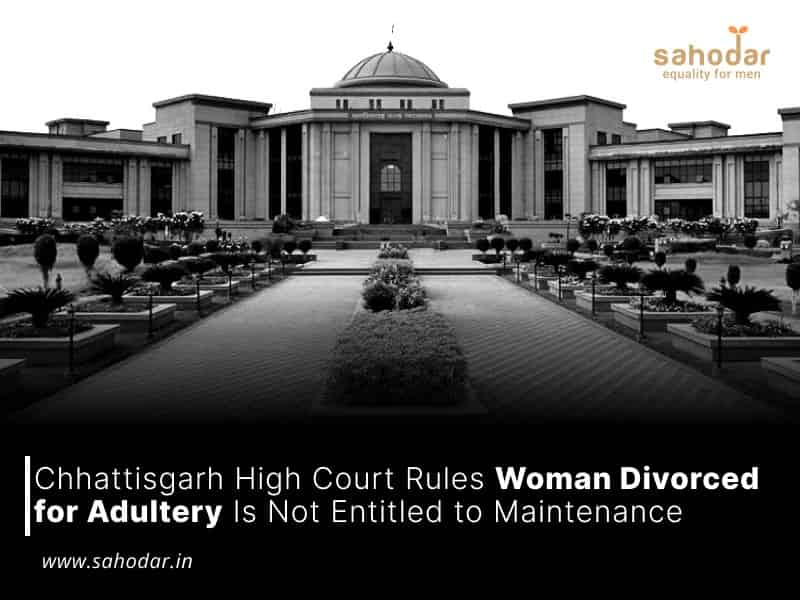Section 125(4) of the CrPC provides that if a woman ‘lives in adultery’, she is not entitled to claim maintenance from her husband.
The Chhattisgarh High Court recently held that a woman who has been Divorced for Adultery cannot claim maintenance from her husband under Section 125 of the Code of Criminal Procedure (CrPC).
Justice Arvind Kumar Verma further stated that if a family court grants a divorce decree in favor of the husband based on the wife’s adultery, the court handling maintenance proceedings cannot adopt an opposing stance.
“Sub-Section 4 of Section 125 of the CrPC provides that if a woman lives in adultery, whose marriage is still subsisting, she is not entitled for maintenance from her husband. Suppose, a decree for divorce is granted on the ground of her living in adultery, can it be said that the said disqualification of which she was suffering from all along, during the subsistence of the marriage, will cease to exist, because of the decree for divorce?. The prudent answer to this question shall be an emphatic – “No”. The decree obtained by the husband for divorce on proving the adulterous life of the wife cannot give a license to her to continue to live in illicit relationship and to get her right to claim maintenance revived. Therefore, I conclude that a divorced wife, who lives in adultery, viz., living in illicit relationship with man other than her former husband is disqualified from claiming maintenance, under Section 125 of the Code,” the Court held.
The Court was considering cross-petitions: one filed by the husband challenging the family court’s order directing him to pay ₹4,000 per month as maintenance to his ex-wife, and the other filed by the woman disputing the insufficiency of the maintenance amount.
The husband contended that the family court overlooked his financial limitations, stating that he was a contractual employee earning just ₹17,131 per month.
He further argued that the family court ignored the fact that another court had granted him a divorce after determining that his wife was committing adultery with his younger brother.
In response, the wife challenged the order, claiming that the maintenance amount of ₹4,000 per month was inadequate and should be increased to ₹20,000, as she had no independent means of income.
She also asserted that the phrase “living in adultery” under Section 125(4) CrPC refers to a continuing adulterous relationship, which, she argued, was not established in her case.
After considering the arguments, the Court observed that the husband had filed for divorce under the Hindu Marriage Act, and a decree was issued on September 8, 2023, based on the grounds of adultery.
“If once the decree for divorce is granted on the ground of adultery, such finding is relevant for deciding the issue of adultery in the present case. The decree is a decree passed on proof of the claim made by means of sufficient evidence which has not been challenged by the aggrieved party,” it added.
Accordingly, the Court stated that the decree issued by the family court established that the wife was living in adultery, which disqualified her from claiming maintenance from the husband.
As a result, the High Court overturned the family court’s order awarding ₹4,000 as maintenance to the wife. The husband’s revision petition was allowed, and the wife’s request for increased maintenance was rejected.

